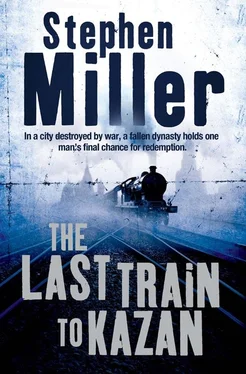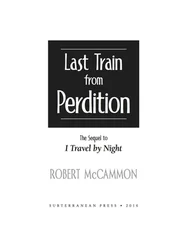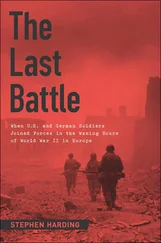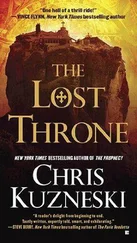They go now from A to B, but he is not walking. The strong young sons of revolutionary Russia are dragging him along. Ahead of him the guard, eager to help out, throws open another steel door.
‘…revolutionary council decision to extract the penalty of death in payment for a lifetime of parasitic activity, of conspiring with the forces of the capitalist enemy, it has been determined that one Pyotr Mikhalovich Ryzhkov shall be immediately…’
A short series of steps, one two three, yet another steel door, remarkably heavy doors for an insurance company, but necessary now that the enemies of the people have begun to be filed away in the basement offices.
A sudden breath of cool air – a diagonal of shade crosses the courtyard. There is, he realizes with horror, a guillotine set up at the very end of the courtyard, and if that was not enough, a gallows, newly built of stripped logs still sticky with resin. But Ryzhkov is being dragged past both of the machines to a wall speckled from gunshots gone awry. A slime of blood is slowly making its labyrinthine way between the cobbles towards a drain. There is a hose there and a quartet of terrorized cadets still in their old Corps des Pages uniforms, tattered and filthy, shackled, with bruises on their dirty faces, sooty and tear-stained. Mere boys kept there to watch and remember, to wipe things down and at the end of the day to take it up the arse.
His bowels loosen. His eyes are stinging. Everything seems beautiful, beautiful. The sun slicing across the courtyard, the guillotine standing erect and waiting for a more distinguished neck than his.
The official voice has finished its litany of his crimes. He is thrown to his knees. The soldiers work the bolts of their rifles, two bullets are chambered. Only two! Soon they will even economize on that, he thinks.
He goes inside himself. A man in a suit has walked up directly in front of the soldiers. After a moment Ryzhkov becomes aware of the man’s shoes in front of him. The guard’s disbelieving voice protesting; even in disappointment he can still laugh.
The infantrymen retreat a few steps and someone grabs his hair and lifts his face up to the sun. It is the guard, cheated out of the punch line to his joke. ‘After they ask you a few more questions, then we’re coming back outside and finish you.’
They light up cigarettes as he is led across the courtyard under the shade of the pine-scented gallows, through a yellow doorway and down another short corridor. Then they spin him, and push him face-first into the wall of an office, unmanacle his hands, and order him to sit.
In front of him is a plain table, and behind it a second chair. He realizes his pants are soiled, from blood, faeces, urine…his own or someone who has gone before him, how could he tell? The room is gorgeous, he thinks. Paradisiacal. A lovely large room, luxurious and clean. With a single window high in the wall, made of glass that has been manufactured with wires inside it.
Shatterproof.
A knot forms in his throat, and he sobs one more time, involuntarily, like a hiccup. Saved, he thinks. Saved at the last moment. Like Dostoyevsky. Saved by some quirk, some whim. Given a few moments more of life, all because of some niggling little detail, some minor bump in the roadway of revolutionary progress. Once it’s all cleared up the guard will get his laugh back.
Maybe it’s a dream. Maybe he has already been executed…and this ‘little room’ is just a way station? A limbo, an office of final accounting where he will be called to explain the many mistakes of his life. If he gets the answers right, perhaps there will be angels and virgins, an old man with a white beard and a gilt-covered book turning to a page inscribed with his name.
Still, he was ready, he thinks. It has taken so long, after all. A lot of pain. Too much pain, and eventually you just…give up. And he was ready (still, it was too quick!), truly ready to meet his maker, to slide into that great dark pit of the unknown, or just to cease, whichever it would be…
Kneeling in the blood and vomit, he was ready, and he is ready even now. The salted crust in the corners of his eyes, that’s something he can wipe away. The clothes can be cleaned. He will catch his breath soon. The blood will clot. That sob will stay contained somewhere between his guts and his lungs. All of that can heal, even his memories will be papered over with whatever pattern his brain can come up with in order to keep him sane.
Meanwhile there is the beautiful room in which he now lives.
Voices in the hall. It is an ordinary door, with an ordinary lock. The smells in this part of the prison are different. Paper, vinegar. Everything is cleaner, less fearful. The hallways have been mopped. They obviously don’t use buckets to do their business in this wing. Is that music playing in the distance?
The efficient sound of shoes in the corridor. A quiet few words, and then the sound of a key turning the lock.
And…in walks the dead man.
The dead man was Velimir Zezulin.
For a moment Ryzhkov was frozen. Stunned, he coughed in surprise, jumped up and got almost half-way out of his chair. He had not seen Zezulin for…almost four years to the day, and on that occasion Zezulin had been drunk. Dead drunk.
Later, the last image he’d seen of Zezulin was of their portraits, along with Konstantin Hokhodiev and Dima Dudenko, printed on St Petersburg police fugitive warning handbills. Maybe no one had recognized him, since the photograph, taken from Zezulin’s ancient Okhrana identity card, was so out of date. Together the four had been sought as murderers of Deputy Minister of Interior, Boris Fauré. What was deliberately not said on the posters and handbills was that they were also suspects in the abduction and murder of their own superior, General A.I. Gulka, head of the entire Third Section.
Somehow he had survived and was now back, a new Zezulin, brisk as a wolverine. Moving with assured fluidity, a solid man with energy held in reserve. He came in, closed the door on the sentry, and sat. Their eyes locked for a moment and then Zezulin pointed to the ceiling and gave an almost imperceptible shake of his head.
Ryzhkov was suddenly very tired. He found that his head was bobbing from side to side, saying no, no…Zezulin must be dead, he had to be dead, as dead as Kostya Hokhodiev, or as vanished as Dima. Surely he’d been killed, since he must have been caught. Of the group, Zezulin was the only innocent and he’d had no warning, so they must have taken him. Zezulin would have been their only prize, so they would have tortured him, and, since he knew nothing, they would have tortured him some more. Eventually they would have shown him the papers, various authorizations Ryzhkov had cadged from him when he was in an alcoholic stupor.
But here he was. Alive, with Ryzhkov’s file in his hands.
‘Citizen Ryzhkov. You will answer the questions I put to you, do you understand? You should understand this by now, given your dossier. You have been interrogated many times, I’m sure you know all about these procedures. Yes, you understand? Correct?’
‘Yes,’ the sound came out of Ryzhkov’s mouth like a whisper.
‘You will be entirely forthcoming.’
He nodded.
‘Your name?’
‘You know my name…’
‘I do, indeed. But you are going to confess it. You will give me the details of your life, your Okhrana training, salient events of your career as an employed thug within the Tsarist political police, the identity of your supervisor, other personalities in your section…’
‘That was a long time ago,’ he said wearily. And it was true. Several lifetimes ago, so remote as to be unreal. A life mulled over, dissected and regretted so many times that there was no honest version he could give. He just shook his head.
Читать дальше












